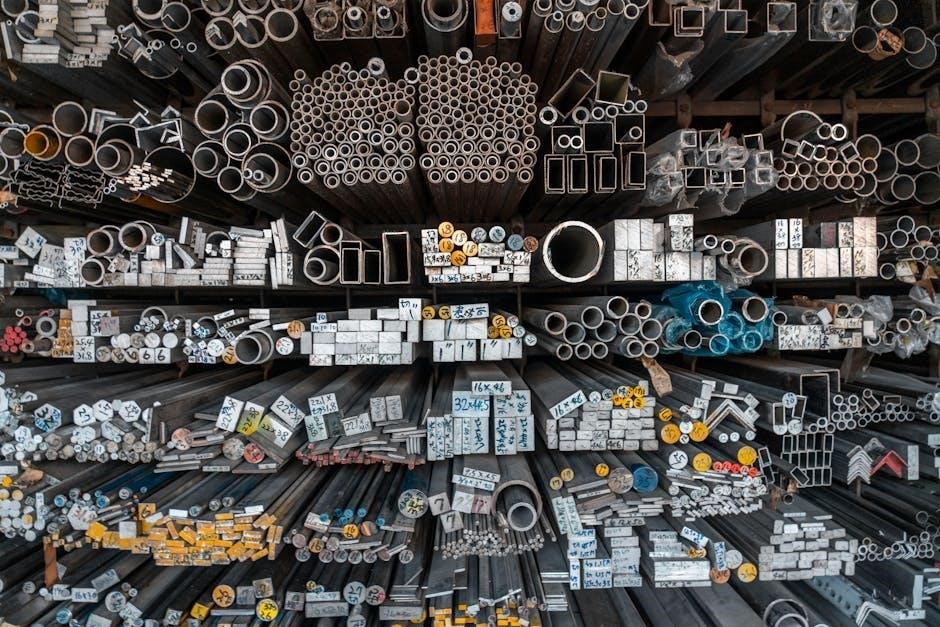Overview of the 6th Edition

The 6th Edition of Manufacturing Processes for Engineering Materials offers a comprehensive guide, updated with new content and illustrations, emphasizing the interconnectedness of materials and processes.
Key Features of the 6th Edition
The 6th Edition of Manufacturing Processes for Engineering Materials in SI Units is a thoroughly updated resource, incorporating new materials and enhanced illustrations. It emphasizes the interconnectedness of materials and manufacturing processes, providing students with a deeper understanding of their capabilities and limitations. Published by Pearson India, this edition maintains a consistent chapter structure while introducing fresh content to reflect modern advancements. The book is designed to help students assess the potential of various manufacturing processes competitively. With its comprehensive coverage, it serves as an essential tool for engineering education, bridging theory and practice effectively. The updated content ensures relevance to contemporary manufacturing challenges, making it a valuable resource for both students and professionals in the field.
Target Audience and Purpose
The primary target audience for the 6th Edition of Manufacturing Processes for Engineering Materials includes undergraduate and graduate students pursuing degrees in mechanical engineering, materials science, and manufacturing engineering. It is also a valuable resource for professionals in the manufacturing and materials industries seeking to deepen their understanding of modern manufacturing techniques. The purpose of this edition is to provide a comprehensive understanding of the fundamental principles and applications of manufacturing processes, bridging the gap between materials science and manufacturing engineering. By focusing on the interconnectedness of materials and processes, the book aims to prepare students for real-world challenges in design, production, and innovation. It serves as both a textbook for academic programs and a practical guide for industry professionals, ensuring a strong foundation in manufacturing engineering.
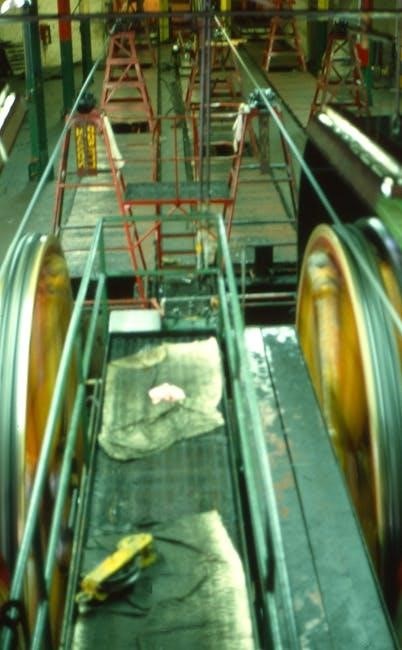
New Features in the 6th Edition
The 6th Edition introduces new materials and enhanced illustrations, providing students with updated insights into modern manufacturing techniques and advancements in materials science.
Updated Content and Revisions
The 6th Edition of Manufacturing Processes for Engineering Materials features thoroughly updated content and revised materials to reflect the latest advancements in manufacturing technology.
New topics and expanded discussions on emerging trends ensure students gain a comprehensive understanding of modern manufacturing practices and their applications.
The revisions emphasize the interconnectedness of materials and processes, providing a holistic view of how different materials behave under various manufacturing conditions.
This edition also includes enhanced clarity in explanations, making complex concepts more accessible to learners at all levels.
By incorporating real-world examples and updated data, the 6th Edition prepares students to tackle challenges in contemporary engineering and manufacturing environments effectively.
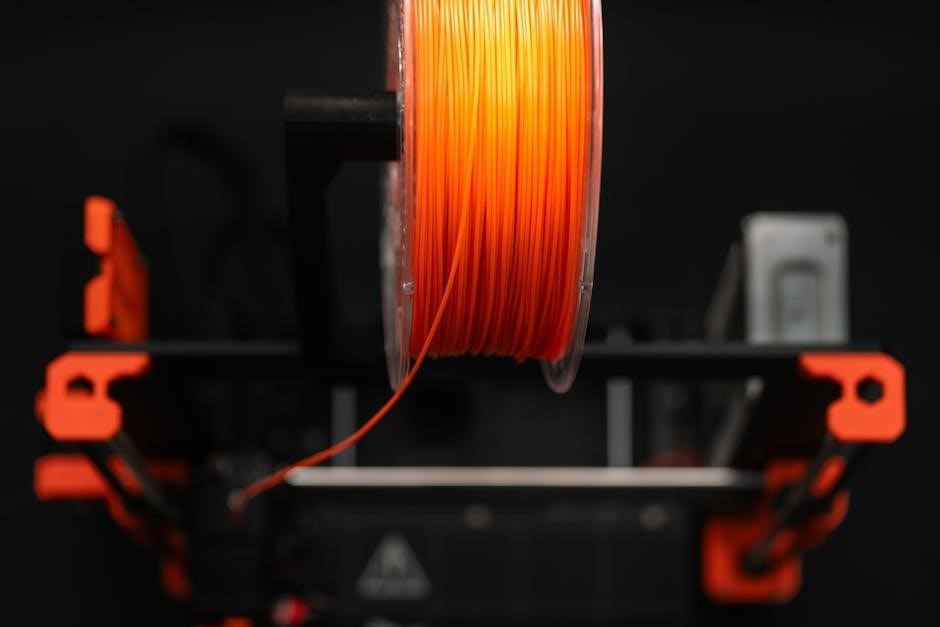
Enhanced Illustrations and Graphics
The 6th Edition of Manufacturing Processes for Engineering Materials boasts enhanced illustrations and graphics, providing students with a clearer and more engaging visual understanding of complex manufacturing processes.
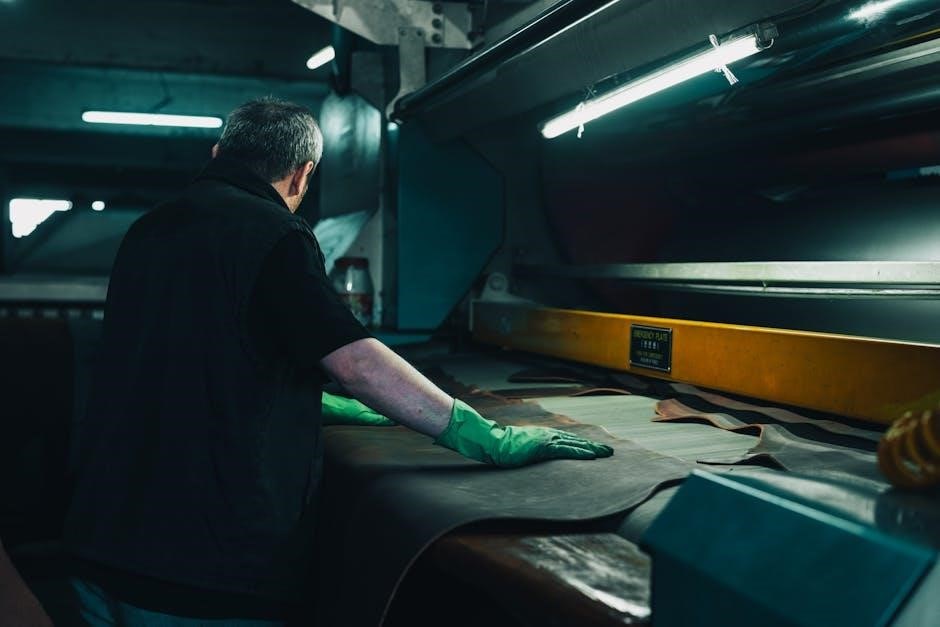
Updated diagrams, flowcharts, and images detail the latest techniques and tools, making abstract concepts more tangible for learners.
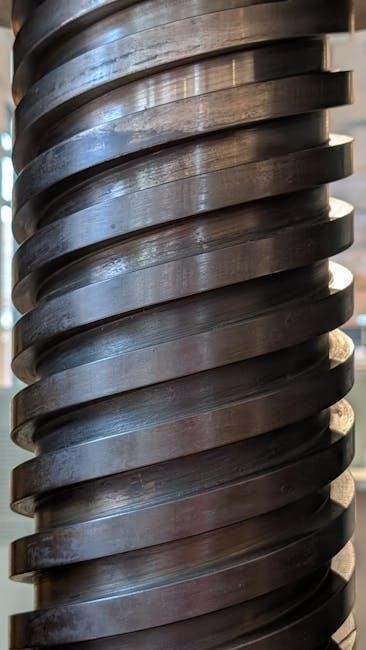
High-quality visuals, including detailed cross-sectional views and step-by-step process representations, aid in understanding the mechanics of metal forming, casting, machining, and joining processes.
The inclusion of color-coded illustrations and 3D models enhances the learning experience, allowing students to better grasp the relationships between materials and manufacturing methods.
These visual enhancements complement the textual content, ensuring a comprehensive and accessible learning resource for both students and professionals.

Manufacturing Processes Covered
The 6th Edition covers metal forming, casting, machining, and joining techniques, emphasizing the interconnectedness of materials and modern manufacturing processes.
Metal Forming and Casting Processes
Metal forming and casting processes are foundational in manufacturing, shaping materials like metals and alloys into desired forms. The 6th Edition details forging, rolling, and extrusion techniques, along with sand casting, investment casting, and die casting. These methods are critical for producing components with precise dimensions and properties. The updated content highlights advancements in metal forming technologies, such as improved tooling and process control, enabling higher efficiency and product quality. Casting processes are also explored, emphasizing the importance of mold design and material selection to achieve optimal results. The edition provides a thorough understanding of these processes, ensuring students and professionals can assess their capabilities and limitations effectively. This knowledge is essential for designing and manufacturing modern engineering components across various industries.
Machining and Joining Techniques
Machining and joining are essential processes in manufacturing, enabling the creation of complex shapes and structures. The 6th Edition covers conventional machining methods like turning, milling, and drilling, as well as non-traditional techniques such as EDM and laser cutting. These processes are vital for achieving precise dimensions and surface finishes. Joining methods, including welding, soldering, and adhesive bonding, are also explored, focusing on their applications and limitations. The edition provides insights into modern advancements, such as robotic welding and friction-stir welding, which enhance efficiency and quality. Understanding these techniques is crucial for engineers to design and manufacture components that meet industry standards. The comprehensive coverage ensures readers gain practical knowledge of machining and joining, essential for both traditional and cutting-edge manufacturing environments.
Engineering Materials Explored
The 6th Edition examines a wide range of engineering materials, including metals, polymers, ceramics, and composites, analyzing their properties, applications, and significance in modern manufacturing processes.
Metals and Alloys
The 6th Edition extensively covers metals and alloys, detailing their properties, manufacturing processes, and applications. It explores ferrous and non-ferrous metals, including steel, aluminum, and titanium, highlighting their significance in engineering. The text discusses phase diagrams, heat treatment, and mechanical properties, providing insights into how these materials are shaped for specific industries. Emphasis is placed on advanced alloys and their role in modern manufacturing, ensuring students understand their relevance in aerospace, automotive, and industrial applications. The updated content reflects recent advancements, making it a valuable resource for both students and professionals in materials science and manufacturing engineering.
Polymers and Ceramic Materials
The 6th Edition provides an in-depth exploration of polymers and ceramic materials, focusing on their unique properties, processing methods, and applications. Polymers, including thermoplastics and thermosets, are discussed in terms of their molecular structures and manufacturing techniques such as injection molding and extrusion. Ceramic materials are highlighted for their high-temperature resistance, hardness, and use in structural and electronic applications. The text also addresses advancements in composite materials, blending polymers and ceramics for enhanced performance. Practical examples illustrate how these materials are used in industries like aerospace, healthcare, and electronics. This section equips students with a foundational understanding of non-metallic materials, essential for modern engineering and manufacturing innovations.
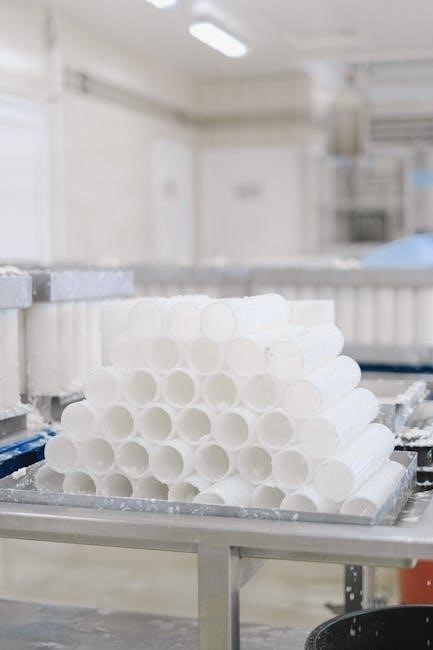
Importance in Education and Industry
The 6th Edition is a vital resource in education, bridging theory and practice for students and professionals. It supports industrial applications by providing insights into modern manufacturing processes.
Role in Engineering Curriculum
The 6th Edition of Manufacturing Processes for Engineering Materials plays a pivotal role in engineering education by bridging theoretical knowledge with practical applications. It serves as a core textbook for undergraduate and graduate courses, providing a detailed understanding of materials and manufacturing processes. The book’s structured approach ensures students grasp fundamental principles while exploring advanced topics. Its comprehensive coverage of metals, polymers, and ceramics prepares learners for diverse engineering challenges. By emphasizing the interconnectedness of materials and processes, it equips students with the skills to assess manufacturing capabilities and limitations. This edition supports hands-on learning, making it indispensable for curricula focused on mechanical, materials, and manufacturing engineering. Its clarity and depth ensure it remains a cornerstone in shaping future engineers.
Applications in Modern Manufacturing
The 6th Edition of Manufacturing Processes for Engineering Materials is widely applied in modern manufacturing, offering insights into cutting-edge techniques and materials. It supports advancements in automation, additive manufacturing, and precision engineering. The book’s focus on materials science and process optimization enables professionals to enhance production efficiency and product quality. Industries benefiting from this edition include aerospace, automotive, and biomedical engineering, where understanding advanced materials and processes is critical. Its practical approach helps manufacturers adopt sustainable practices and integrate new technologies. By addressing real-world challenges, the text serves as a valuable resource for improving manufacturing systems and driving innovation across various sectors. Its relevance ensures it remains a key tool for both educators and practitioners in modern manufacturing environments.

Availability and Resources
The 6th Edition is available as a PDF and in digital formats, with solution manuals and supplementary materials accessible online for enhanced learning and reference.
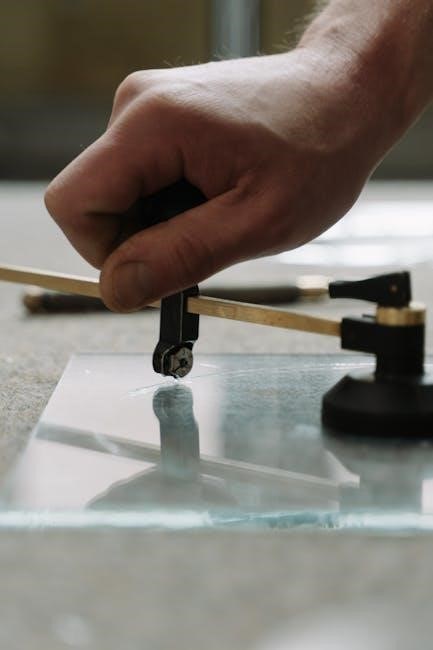
PDF and Digital Versions
The 6th Edition of Manufacturing Processes for Engineering Materials is widely available in PDF and digital formats, offering convenient access for students and professionals. Published by Pearson India on October 10, 2018, the digital version is optimized for online learning, ensuring portability and easy access across devices. The PDF format allows users to download and reference the material offline, making it ideal for studying or professional use. These digital resources are also shared widely in academic and engineering communities, providing a flexible alternative to traditional textbooks. With its comprehensive coverage and updated content, the PDF and digital versions of the 6th Edition remain a popular choice for understanding manufacturing processes and engineering materials.
Solution Manuals and Supplementary Materials
Solution manuals and supplementary materials for the 6th Edition of Manufacturing Processes for Engineering Materials are widely available, supporting deeper understanding and practical application. These resources, often shared in PDF format, include detailed solutions to chapter problems, enabling students to verify their work and grasp complex concepts. Supplementary materials, such as lecture slides and additional case studies, complement the textbook, aiding both instructors and learners. Many of these resources are accessible online, with some shared through academic platforms or forums. They are particularly valuable for coursework, exams, and research, making them an essential companion to the 6th Edition. These materials enhance the learning experience, ensuring students master the fundamentals of manufacturing processes and engineering materials effectively.
